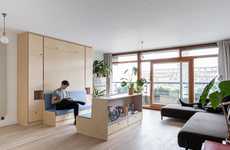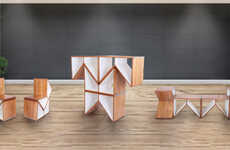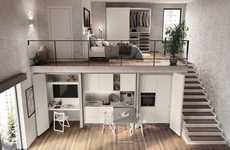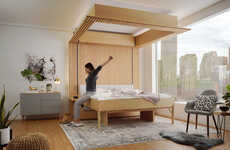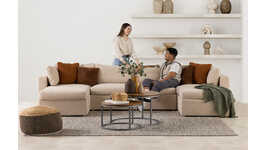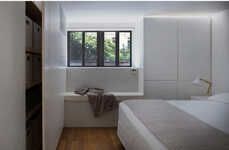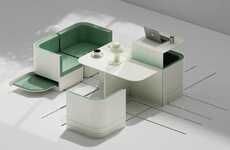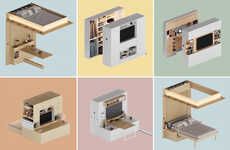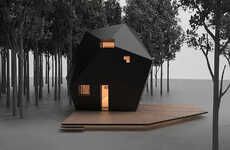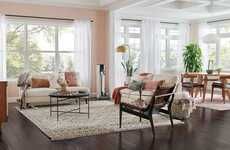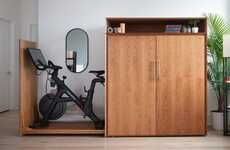
The Smile Apartment Complex Boasts a Smart Furniture System
Elena Rahman — October 21, 2021 — Art & Design
References: big.dk & yankodesign
The Smile is a new apartment complex in East Harlem. It was designed by BIG (Bjarke Ingels Group) to foster a modern and modular lifestyle. The complex is equipped with in-unit robotic furniture. As technology continues to modify the way we live in cities, the East Harlem apartment complex is following suit.
The BIG architectural firm partnered with Bumblebee Space to integrate a smart, modular furniture system throughout The Smile building. Each apartment is built around a ceiling-mounted grid. The system is comprised of storage cabinets and bed frames that rise and descend according to each resident's daily and changing needs. When a component is not used, it rises and disappears into the ceiling to make space for other activities. A voice command recognition system recalls the furniture to its original position.
Image Credit: BIG
The BIG architectural firm partnered with Bumblebee Space to integrate a smart, modular furniture system throughout The Smile building. Each apartment is built around a ceiling-mounted grid. The system is comprised of storage cabinets and bed frames that rise and descend according to each resident's daily and changing needs. When a component is not used, it rises and disappears into the ceiling to make space for other activities. A voice command recognition system recalls the furniture to its original position.
Image Credit: BIG
Trend Themes
1. Modular Furniture Systems - The integration of modular furniture systems can transform the way people design and use their living spaces, allowing for more flexibility and functionality.
2. Smart Home Automation - The rise of smart home technology presents an opportunity for the integration of robotic furniture that can seamlessly adapt to changing daily needs without the need for manual adjustment.
3. Iot-connected Furniture - IoT-connected furniture systems with voice recognition capabilities offer the possibility to enhance convenience, accessibility, and efficiency in home environments.
Industry Implications
1. Real Estate - Real estate developers could leverage modular furniture systems to differentiate their properties and offer unique living experiences to attract tenants.
2. Furniture Manufacturing - Furniture manufacturers can explore opportunities in the design and production of modular, robotic, and IoT-connected furniture systems that cater to evolving consumer demands for flexible and adaptable living spaces.
3. Home Automation - Home automation companies could expand their product offerings to include customizable, voice-controlled, and IoT-connected furniture systems as part of their integrated smart home solutions.
6.8
Score
Popularity
Activity
Freshness

